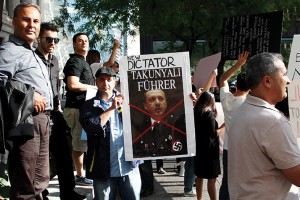NISARG KAMADAR ANALYSES THE BAN ON TWITTER IN TURKEY BEFORE ITS ELECTIONS AND WHETHER THE MOVE IS INDICATIVE OF THE POWER OF SOCIAL MEDIA IN A DEMOCRACY
 THE STORY OF TURKEY
THE STORY OF TURKEY
India has 125 million internet users. On an average, Indian web users spend 26 minutes online each day. On an average, Facebook is visited at least thrice a day. Does this alter the way in which elections are fought in this country? Has social media evolved to the stage where it influences and even
swings elections?
Turkey’s latest political maelstrom had social media websites at its epicentre. Prime Minister Recep Tayyip Erdogan decided to ban Twitter couple of weeks before the local elections were to occur. Erdogan, who had previously referred to the website as society’s “worst menace” was piqued by the release of incriminating audio recordings revealing corruption inside his government on Twitter.
He next banned YouTube when an audio recording of a high-level security meeting was leaked on the website. What followed was a classic case of the Streisand effect. The Streisand effect is the phenomenon whereby an attempt to hide, remove, or censor a piece of information has the unintended consequence of publicising the information more widely, usually facilitated by the internet. Residents of Turkey found ingenious ways of getting around the blocks and accessing the social media networks.
Turkey has 32 million Facebook users (41.59% of the population) and 9 million Twitter users (11% of the population). This constitutes the fourth largest and eighth largest base for the respective social networks. Most political pundits therefore expected the Prime Minister’s party to perform poorly in the upcoming local elections. Defying all predictions, the ruling Justice and Development Party scored a resounding victory. The lack of impact is baffling, considering social media had played an integral role in facilitating several anti government protests in Turkey in the past year.
DOES SOCIAL MEDIA MATTER?
It is extremely difficult to quantify social media’s role in the vicissitudes of electoral politics. In democracies social media sets the agenda. 24×7 news channels have lost their hegemony. People are telling journalists what stories they want to see and read. Every network channel has a segment or a separate show on the day’s social media trends. Such an inclusive pattern forces television anchors and opinion makers to be more accommodative of alternate views and keeps them in touch with prevailing moods.
Social media has also led to the democratisation of news. News is no longer just the purview of an elite group of journalists. Rather, each and everyone one of us is a broadcaster, capable of shaping opinions. The trends represent the prevailing mindset of the majority of the users on the network.
There is however a tendency of social media, especially Twitter, to turn into an echo chamber. People tend to follow folks with similar views, and they tend to keep parroting on another’s opinion, thus convincing themselves that they indeed are the opinions of the people at large. This is particularly exacerbated in the case of media persons.
TWITTER AND POLITICS IN INDIA
12.6% of the Indian population uses internet services. With such an abysmal rate of penetration, social media played an important but limited role in the general elections. Unlike other major democracies, social media in India has been unable to substantially engage the poorest and most marginalised in political processes.
Social media was harvested well by the Aam Aadmi party to crowd source ideas for their manifesto. AAP was also extremely successful in mobilising funds for its political campaign through pleas on social media.
Out of 93 million Facebook users, 90% are eligible to vote. Politicians reached out to their constituents through constant updates and answering queries. This created a personal interest in the candidate.
However, the control of political discourse via social media is peppered with potential pitfalls. A recent sting operation showed how political parties are using social media agencies to generate a pseudo buzz around them. This is predominantly observed on Twitter where it is easy to create a buzz around a topic or to get it to trend.
Parties hire social media agencies, who, using dummy accounts, tweet using a certain hash tag, thus getting the topic to trend.
In short, the social media networks are open to manipulation.
THE PULSE OF THE NATION
A staggering 44% of Twitter users have never tweeted which raises several questions over the viability of such mediums as references for the pulse of the nation. Quite ironically, social media networks which were supposed to be the bastion of free speech have now been reduced to a bunch of online armies slanging it out in a contest laced with profanity. Especially during election season, social media tended to feed the mob frenzy. Any heretic opinion was treated with contempt and became the subject of ridicule and threats.
A mature democracy is one which accommodates every opinion under one umbrella and there is a need to guard against such rabid chauvinism on social media. The impact of social media on political processes remains controversial and not well understood. Social media though, cannot be ignored. How it can most effectively be used to prolong engagement between the government and elected representative, and the proletariat beyond the election period must dominate the policy initiatives of the new government.
Volume 3 Issue 11





























